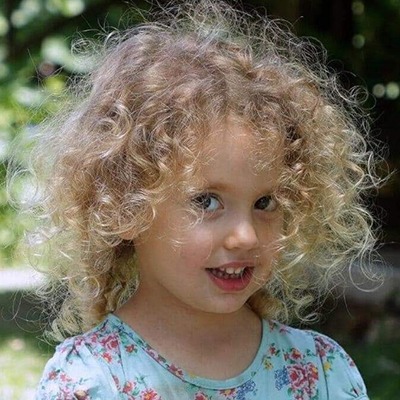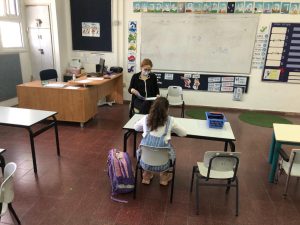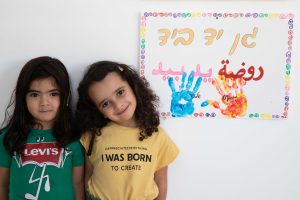Reduced Inequalities


Home » Reduced Inequalities » SDG 10 – World Children’s Day in Israel
SDG 10 – World Children’s Day in Israel
“For every child, every right” – so goes the UN’s theme for this year’s World Children’s Day (November 20). Does that also hold for Israeli children?
Tragically, it’s too late for the 34 Israeli minors killed by Hamas in its October 7 massacre (the remains of Liel Hetzroni, 12, were the most recent to be identified – 40 days after her murder – by archaeologists brought in to help identify bodies burned beyond recognition).
Furthermore, all of the rights of another 33 Israeli children – among them 10 babies under five years old – have been denied since the terrorist group kidnapped them to Gaza on October 7. As for the 21 Israeli minors – including a four-year-old being held hostage there – who Hamas orphaned on that brutal day, never again will they enjoy the right to be raised by their parents.
So, what are Israel’s already traumatized children to do on World Children’s Day? Recuperate, remember, hope – and take action, that justice be done. For middle and high schoolers, that means activities to raise international awareness of their peers’ plight. For all Israeli children, it means somehow getting on with their broken lives.
Apropos, ever since the October 7 Hamas attack against Israel one phrase in particular recurs in its public discourse: “emergency routine.” That might seem like an oxymoron; not in wartime. The issue is especially vital when it comes to education.


The more than 230,000 Israelis now displaced and living in alternative communities or hotels of course include many children, who required quick solutions. Some of them are in the local school systems (Hebrew) of their temporary place of residence; others go to education centers set up within hotels; and there are also those who attend new schools established in hotel areas in the Dead Sea and Eilat by the Education Ministry (which has also committed to fully cover the expenses of day care programs for toddlers up to the age of three).
In addition, institutions of higher education – closed because about 30% of all students were mobilized by the army (together with thousands of faculties and staff) – have opened their doors to facilitate grade-school education initiatives.
They have also been active in other ways: from offering their own students grants to providing the displaced with housing.
As for Israeli children not displaced, the vast majority live in areas where they are technically allowed to return to school; however, for this to happen the authorities need to overcome a range of challenges, including the military call-up of staff. Safety issues particularly stand out among the obstacles: according to local municipality data (Hebrew), thousands of children in authorized regions have yet to fully return to class because structures are not considered appropriately equipped to protect all children from rocket attacks. As a result, some currently alternate between in-person schooling and distance learning on a rotating basis.
The challenges that Israel’s children now face go far beyond the efforts – well intentioned, even if with mixed results – to maintain an “emergency routine” in education. Indeed, experts (Hebrew) are already recommending that they receive the necessary attention forthwith to prevent longer-term mental health effects.
That, dear readers, is their reality on this World Children’s Day.
Related articles


SDG 10-Emerging from Corona with Disabilities & Special Needs
Reduced Inequalities Following an approximately six-week shutdown, Israel is now accelerating measures restoring life to as close to the pre-coronavirus reality as possible. At the


SDG 10- Arab Community Empowerment: from Discourse to Action – Part 2
Reduced Inequalities Read Part 1 In Part 1 of this update we focused on the brass tacks necessary to advance the economic empowerment of Israel’s


SDG 10- Digital Equity: The Next Phase – Part 3
Reduced Inequalities Read Part 1, Part 2 After examining digital equity in the context of infrastructure (part 1) and employment (part 2), this last segment


















